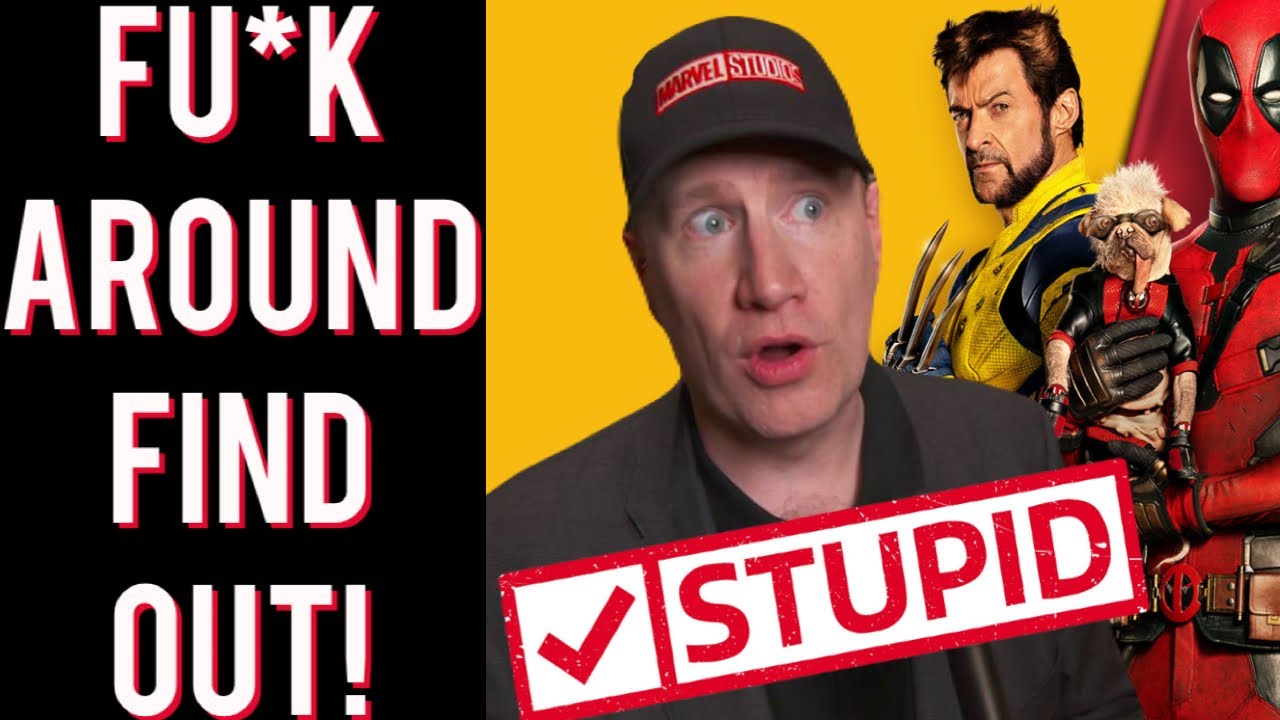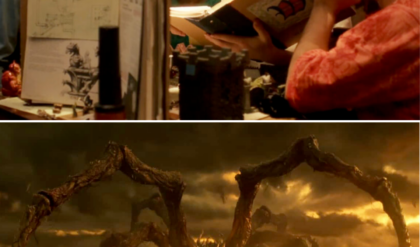Thunderbolts’ Box Office Flop: Marvel’s Crisis and the Feige Question
The Marvel Cinematic Universe, once the unchallenged titan of Hollywood, is facing a crisis of confidence as its latest offering, Thunderbolts*, stumbles at the box office, projected to lose Disney upwards of $100 million. With a global gross of just $355 million against a break-even point estimated at $450-600 million, the film—rebranded as The New Avengers—has become the second-worst performer in MCU history, trailing only The Marvels. Fans are sounding the alarm, declaring that “Marvel’s losing its magic,” while whispers of discontent swirl around Disney CEO Bob Iger and Marvel Studios president Kevin Feige. Social media is abuzz with calls for a drastic overhaul, with some even demanding Feige’s ouster. But is the man who built the MCU into a $31 billion juggernaut really on the chopping block, or is Thunderbolts’ failure a symptom of deeper challenges? This saga of antiheroes, ambition, and audience fatigue reveals a franchise at a crossroads.

The Rise and Fall of Thunderbolts*
Released on May 2, 2025, Thunderbolts* was positioned as a bold experiment for Marvel’s Phase Five, assembling a team of antiheroes led by Florence Pugh’s Yelena Belova. Directed by Jake Schreier, the film features a stellar cast—Sebastian Stan as Bucky Barnes, Wyatt Russell as John Walker, Olga Kurylenko as Taskmaster, Hannah John-Kamen as Ghost, and Julia Louis-Dreyfus as the scheming Valentina Allegra de Fontaine. The story follows these misfits, trapped in a deadly plot by de Fontaine, as they navigate a high-stakes mission that culminates in their rebranding as The New Avengers, setting the stage for 2026’s Avengers: Doomsday. With a $180 million production budget and $100 million in marketing, Marvel banked on the film’s gritty tone and indie-inspired cast to reinvigorate the MCU.
The film opened to a modest $76 million domestically and $86 million internationally, totaling $162 million for its debut weekend. While these numbers surpassed The Marvels ($46 million) and Eternals ($71 million), they fell far short of blockbusters like Deadpool & Wolverine ($211 million). Positive audience reactions—an 88% Rotten Tomatoes score and an A- CinemaScore—offered hope for staying power, but the film’s second weekend saw a steep decline, and by May 26, its global tally stood at $355 million, well below the $450 million needed to break even. Analysts estimate a final gross under $400 million, cementing a loss of at least $100 million for Disney, which retains only about half of ticket sales due to theater splits and lower foreign market shares.
A String of Post-Endgame Struggles
Thunderbolts’ underperformance is not an isolated incident but part of a troubling trend for Marvel since Avengers: Endgame in 2019. While hits like Spider-Man: No Way Home and Deadpool & Wolverine have kept the MCU afloat, a slew of films—Ant-Man and the Wasp: Quantumania, The Marvels, and Captain America: Brave New World—have failed to recoup their costs. The Marvels, with a mere $205 million worldwide, remains the MCU’s biggest bomb, but Thunderbolts’ second-place ranking is a stark reminder of the franchise’s fading invincibility. Disney’s recent investor report confirmed Captain America: Brave New World as a financial failure at $415 million, and Thunderbolts’ trajectory suggests a similar fate.
The MCU’s struggles stem from multiple factors. Post-Endgame, the departure of iconic characters like Iron Man and Captain America left a void that new heroes have struggled to fill. Thunderbolts’ roster, while compelling to hardcore fans, lacks the mainstream appeal of Spider-Man or Wolverine, a point underscored by its failure to attract female audiences, who flocked to Deadpool & Wolverine but skipped The Marvels and Black Widow. The film’s heavy focus on Yelena Belova, while praised for Pugh’s commanding performance, may have misjudged audience interest, with some arguing that a Winter Soldier-led story could have drawn larger crowds. Additionally, the MCU’s shift toward a denser, multiverse-driven narrative has alienated casual viewers, who find the interconnected plots daunting.
Bob Iger’s New Vision
Disney CEO Bob Iger has publicly acknowledged the MCU’s post-pandemic challenges, admitting that an overemphasis on quantity—particularly for Disney+ streaming—diluted quality. In a May 2025 investor call, Iger hailed Thunderbolts as the “first and best example” of Marvel’s new strategy to prioritize “better movies, even if that means fewer of them.” The film’s indie-inspired tone, practical stunts, and focus on character humanity were meant to echo the MCU’s early days, when Iron Man captivated with its grounded storytelling. Florence Pugh, a standout from Oppenheimer and Dune, reinforced this vision, noting the film’s “raw, emotional” feel and Marvel’s willingness to take risks.
Yet, the box office numbers tell a different story. Despite Iger’s optimism, Thunderbolts’ financial failure has fueled speculation about his frustration with Marvel’s trajectory. The film’s rebranding as The New Avengers, a clever marketing ploy tied to an asterisk in the title, aimed to stoke interest but failed to translate into sustained ticket sales. Iger’s upcoming slate—Fantastic Four: First Steps, Zootopia 2, and Avengers: Doomsday—is touted as a return to 2019’s $11 billion glory, but Thunderbolts’ stumble casts doubt on whether Marvel can recapture its magic. The competitive Memorial Day weekend, pitted against Lilo & Stitch and Mission: Impossible – The Final Reckoning, further hampered its performance, highlighting the crowded theatrical landscape.
The Kevin Feige Conundrum
At the heart of the debate is Kevin Feige, the architect of the MCU’s unprecedented $31 billion gross. Since taking the helm in 2007, Feige has transformed Marvel into the highest-grossing franchise in history, earning accolades like an Academy Award nomination for Black Panther and the David O. Selznick Achievement Award. His vision for a shared universe, inspired by Stan Lee and Jack Kirby, revolutionized superhero cinema, culminating in Endgame’s record-breaking run. However, recent failures have put Feige under scrutiny, with some fans and analysts questioning whether his formula—once a Midas touch—has grown stale.
Social media has amplified these concerns, with posts decrying Marvel’s “predictable narrative and tonal formula” and pointing to Thunderbolts’ flop as evidence of Feige’s missteps. The film’s development, marked by Feige’s approval of the asterisk gimmick and the New Avengers twist, reflects his hands-on approach, but critics argue he misjudged the appeal of lesser-known characters. Speculation about his job security has surfaced, fueled by Thunderbolts’ loss and the broader MCU downturn. Some even reference past tensions, noting that in 2015, Iger intervened to save Feige from being fired by then-Marvel Entertainment head Ike Perlmutter, suggesting that Feige’s position is not unassailable.
Yet, calls to fire Feige are largely speculative and lack credible backing. Iger’s recent praise for Thunderbolts as a quality-driven pivot, coupled with Feige’s expanded role as Marvel’s chief creative officer since 2019, underscores his centrality to Disney’s strategy. Feige’s track record—hits like Guardians of the Galaxy and Spider-Man: No Way Home—demonstrates his ability to course-correct, and his oversight of upcoming projects like Avengers: Doomsday and Secret Wars makes his departure unlikely. The suggestion that Iger is “sick” of Marvel’s failures may reflect investor frustration, but Feige’s ouster would be a seismic shift, akin to dismantling the MCU itself.
The Bigger Picture
Thunderbolts’ failure is a microcosm of broader industry challenges. The theatrical landscape has shifted since the MCU’s pre-COVID dominance, with audiences increasingly selective due to streaming options and economic pressures. Marvel fans, knowing films like Thunderbolts will hit Disney+ within months, are less inclined to pay $20 for theater tickets, a trend evident in the film’s $12 million presales matching Eternals. The MCU’s reliance on male-driven audiences, particularly young men, has also limited its reach, with Thunderbolts failing to replicate Deadpool & Wolverine’s crossover appeal.
The film’s strengths—Pugh’s magnetic performance, a 7/10 IGN review praising its character depth, and practical stunts like Pugh’s daring Merdeka 118 jump—were not enough to overcome its niche appeal and narrative risks. The decision to delay Avengers: Doomsday and Secret Wars suggests Marvel is recalibrating, possibly to avoid further flops like Thunderbolts. Meanwhile, Fantastic Four: First Steps, set for July 2025, faces its own hurdles, with fan skepticism and controversy around star Pedro Pascal’s online activity adding pressure.
A Plan for Redemption
Marvel’s path forward hinges on learning from Thunderbolts’ missteps. A return to mainstream heroes, as seen in the upcoming Spider-Man 4 and Avengers films, could stabilize the franchise, while bolder risks—like Thunderbolts’ indie vibe—need broader appeal to succeed. Feige, despite criticism, remains the linchpin, with Iger’s support signaling confidence in his ability to pivot. The MCU’s global fanbase, still 37 million strong for The Last of Us Season 2, suggests resilience, but Marvel must recapture casual viewers to avoid further losses.
Thunderbolts’ $100 million loss is a wake-up call, not a death knell. The MCU’s legacy—forged by Feige’s vision and Iger’s backing—endures, but the pressure is on to deliver. As fans demand a new plan, the question isn’t whether Feige should go, but whether he can steer Marvel back to its billion-dollar heights. The answer lies in the theaters, where the next chapter of this superhero saga will unfold.





